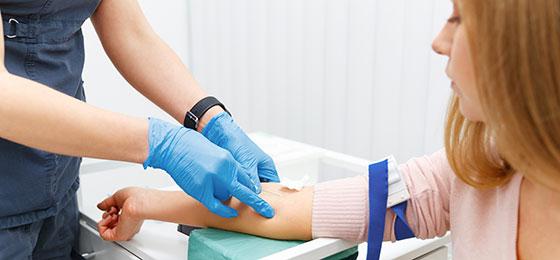Expanding successful diagnostic methods

Researchers have developed new rapid diagnostic tests that detect antibiotic resistant pathogens.
Project description (completed research project)
Early diagnosis of antibiotic resistance is key for optimising the use of antibiotics in order to reduce mortality and limit the emergence of antibiotic resistance. At present, mainly microbiological diagnostic tests are used in daily clinical practice because they are able to recognise many resistance genes in pathogens. Patrice Nordmann and researchers from the University of Fribourg have now developed several new antibiotic resistance tests. The researchers focused specifically on difficult-to-treat multi-resistant bacteria of great clinical significance in human medicine, particularly hospital-acquired pathogens such as Enterobacteraciae, Acinetobacter baumannii and Pseudomonas aeruginosa . In addition, some tests may also be used in veterinary medicine.
Choice of methods depends on the pathogen
One of the researchers’ main goals was to shorten the time needed to detect resistance. With many frequently used tests, 24 hours or more pass between the time a sample is taken from a patient and receipt of the result. Patrice Nordmann and his team were able to reduce this time to between 30 minutes and three hours for several of their new tests. To this end, they specifically adapted the test method for different bacteria.
Thus, some of the newly developed tests use biochemical methods which can detect individual substances produced by certain antibiotic-resistant bacteria directly in blood, urine or other samples. One test, for example, identifies the substance nitrocefin, which is produced by bacteria that are resistant to the antibiotic amoxicillin and narrow-spectrum ß-lactam antibiotics, in urine samples. The test can therefore be used in point-of-care diagnostics for urinary tract infections. The researchers are currently still enhancing its sensitivity (= reliability that the pathogen a test is looking for will be detected if it is present) before it is made market-ready. Other tests developed in the project, which detect antibiotic-resistant Pseudomonas aeruginosa and Acinetobacter baumannii (polymyxin resistance) and certain Enterobacterales (Rapid ESBL NP, detection of extended-spectrum ß-lactamases), have already received market approval.
Market approval for several tests
The researchers have also succeeded in bringing to market several tests that use either biochemistry or culture-based methods. Here, bacteria are first isolated from samples and placed in a nutrient medium where they multiply rapidly. If a sufficient number are present, either the bacteria themselves or their metabolites can be analysed to obtain information about resistances. Conventional tests using this method usually take a relatively long time, but recently it has become possible to significantly accelerate the multiplication of many bacterial species using specifically adapted nutrients.
The team was less successful with tests using immunological methods. These are based on artificial antibodies and antigens that bind exclusively to very specific sites of a pathogen. If this pathogen is present in a blood, urine or other sample, a corresponding reaction can be observed. However, the antibodies tested by the researchers were not specific enough, i.e. the tests too often showed a positive result even if the antibiotic-resistant bacterium sought was not present in a sample.
Overall, with several new diagnostic tests already available for clinical use, the project has been enormously successful. Patrice Nordmann and his team are thus making a major contribution to improved treatments and more targeted use of antibiotics. Their tests will contribute to antibiotic stewardship, which plays a key role in controlling antibiotic resistance, and to the rapid screening of carriers of multidrug resistant bacteria in order to limit their spread in healthcare settings.
Stand: May 2022
Original title
Rapid diagnostic tests for detection of antibiotic resistance in clinically-significant Gram-negative bacteria
